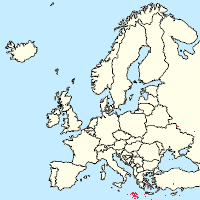2 125 Signaturer
Ansvarlig har ikke sendt inn kampanjen
Begjæringen er stilet til: Responsible Policy makers in Belgium and Germany
In view of the urgency of the climate crisis the planned nuclear phase-out in both countries should be abandoned. The undersigned appeal to political decision-makers in Belgium and Germany:
to aim for an energy industry with zero or negative CO2 emissions instead of targeting 100% renewables,
to suspend the planned early closure of nuclear power plants as long as fossil power plants are operating,
not to politically hinder the necessary expansion of nuclear energy in the EU, but rather to support it,
not to construct any new fossil power plants and to consider new nuclear power plants when replacing fossil power plants.
As an immediate measure and a gesture of seriousness about our climate problem, we appeal to the German Federal Government to suspend the shutdown of the Philippsburg nuclear power plant planned for the end of this year and to shut down coal plants instead. This will not only prevent avoidable deaths due to air pollution but bring our emission reduction goals closer. As long as fossil fuel power plants continue to operate, it is irresponsible to shut down functioning nuclear power plants with relatively low operating costs and zero emissions.
With a good climate policy, we can change the future of human civilisation for the better – even now and immediately – by reducing air pollution more quickly. To achieve this, we must liberate ourselves from unjustified and traditional constraints and rather work together using all the means at our disposal, including nuclear power.
The initial signatories act on their own, private responsibility and do not speak for organisations in which they work professionally or voluntarily. The same applies to all those who join this appeal:
Dr. Maarten Boudry (philosopher of science, University of Ghent), Dr. Dr. Simon Friederich (philosopher of science, University of Groningen, board of Ökomoderne e.V.), Kirsty Gogan (CEO Energy for Humanity), Prof. Dr. James Hansen (climate scientist, Columbia University), Prof. Dr. Dr Rafaela Hillerbrand (philosopher of science and ethicist of technology, Karlsruhe Institute of Technology), Mark Lynas (author and environmental activist), Iida Ruishalme (a biologist, blogger at Thoughtscapism.com, and a Mother for Nuclear), Amardeo Sarma (electrical engineer and leader in the global skeptical/rationalist movement),Dr. Anna Veronika Wendland (Historian for Eastern Europe and Science & Technology Studies, Herder Institute for East Central European History - Institute of the Leibniz Association, Marburg, Germany)
Grunnen til
We write this open letter with deep concern for future generations and the living world. By burning fossil fuels and emitting greenhouse gases, we are causing global warming, acidifying the oceans and threatening coastal regions by rising sea levels. The consequences threaten to be far-reaching, self-reinforcing and potentially irreversible. It is our conviction that we can avoid the worst risks and shape a positive future with the help of science and the wise use of all the means at our disposal.
To keep climate change within manageable limits, we must phase out fossil fuels as soon as possible. At least since the scientific US Charney Report of 1979 [1], we have known that doubling the concentration of carbon dioxide in the atmosphere will lead to global warming of 1.5°C - 4.5°C. We have also known for decades that fossil fuels cause tens of thousands of deaths through air pollution. However, the environmentalist movement at the time hardly protested against coal-fired power plants, but rather against nuclear power plants, viewing them as an unacceptable threat to humanity and the planet.
This assessment has turned out to be a tragic error. Nuclear energy is among the safest of all major energy sources if one takes into account the full energy life cycle, perhaps the safest [2,3]. Many more people have died prematurely as a result of the normal operation of fossil power generation than as a result of nuclear accidents. And since, as a response to fears of nuclear energy, governments have closed nuclear power plants and most often replaced them by fossil power plants, the anti-nuclear movement has caused far more damage to humans and the environment than it has prevented.
This also applies to Belgium and Germany. In Germany alone, the use of nuclear energy between 1971 and 2009 prevented between 29,000 and 470,000 premature deaths from air pollution [4]. Today, however, governments are shutting down nuclear power plants prematurely while keeping fossil plants operating and even planning new ones. We consider this to be ethically unacceptable.
Nuclear power plants still produce around a quarter of low-emission electricity in Germany and around three quarters in Belgium. Nevertheless, authorities plan to shut down all nuclear plants completely, in Germany by 2022, in Belgium by 2025. This even though their operation is compatible with a further expansion of wind and solar power and contributes to a reliable base supply of electricity independent of weather and time of day. According to the current state of scientific knowledge, the goal of emission-free electricity is most likely to be achieved if, in addition to solar and wind energy, an energy source independent of the weather and time of the day such as nuclear energy is used to a considerable extent [5].
Both Belgium and Germany have developed explicit plans for the construction of new fossil-fuel power plants – namely, gas-fired power plants. While these, compared to coal plants, emit only about half of the emissions, investments in any additional fossil power plants make the complete decarbonisation of our energy system by the middle of the century extremely unlikely. However, this is necessary to achieve the 1.5°C or 2°C climate targets.
Literature:
[1] Charney, J. G. et al. (1979), Carbon Dioxide and Climate, A Scientific Assessment. Report of an Ad Hoc Study Group on Carbon Dioxide and Climate to the Climate Research Board, Assembly of Mathematical and Physical Sciences, National Research Council.
[2] Anderson, K. et al. (2013), A Review of Research Relevant to New Build Nuclear Power Plants in the UK (commissioned by Friends of the Earth UK). Tyndall Centre, University of Manchester, https://www.foe.co.uk/sites/default/files/downloads/tyndall_evidence.pdf.
[3] Markandya, A. and Wilkinson, P. (2007), Electricity generation and health. The Lancet, 370(9591), 979-990.
[4] Kharecha, P.A. and J. E. Hansen (2013), Prevented mortality and greenhouse gas emissions from historical and projected nuclear power. Environmental Science and Technology, 47, 4889-4895.
[5] Jenkins, J. D., M. Luke and S. Thernstrom, (2018), Getting to zero carbon emissions in the electric power sector. Joule, 2(12), 2498-2510.
Del begjæring
Informasjon om kampanjer
Petisjon startet:
03.05.2019
Begjæringen avsluttes:
02.11.2019
Region:
Den europeiske union
kategori:
Energi
Denne kampanjen er oversatt til følgende språk
nyheter
-
Petition wurde nicht eingereicht
på 03.11.2020Liebe Unterstützende,
der Petent oder die Petentin hat innerhalb der letzten 12 Monate nach Ende der Unterschriftensammlung keine Neuigkeiten erstellt und den Status nicht geändert. openPetition geht davon aus, dass die Petition nicht eingereicht oder übergeben wurde.
Wir bedanken uns herzlich für Ihr Engagement und die Unterstützung,
Ihr openPetition-Team
debatt
Zwei Kernkraftwerk um 1 000 MW können im sechs Jahre gebaut werden. Jede werk leveriert etwa 7.5 TeraWattStunden d.H. 15 TWS. Im Scheden 4 000 Vindkraftwerk leveriert total 17 TWS einschliesslich Lagering. D.H. etwa ungefähr dieselbe. Um 4 000 Vindkraftwerk im sechs Jahre zu bauen brauchen wir 667 Werk jede Jahre zu bauen. Gleichzeitich mit 20 Jahre Lebenszeit kontra Kernkraftwerk haben Lebenzeit um 80 Jahre. Kernkraft ist mehr ekonomish, effektiv eben ramaterial und Vindkraft totet 166 persönen im nuhr eine Jahr weltweite.
Ingen CONS-argument ennå.




